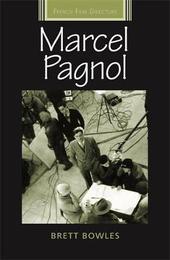
|
Marcel Pagnol
Hardback
Main Details
Description
Though long ignored or dismissed by film critics and scholars, Marcel Pagnol (1895-1974) was among the most influential auteurs of his era. This comprehensive overview of Pagnol's career, the first ever published in English, highlights his unique place in French cinema as a self-sufficient writer-producer-director and his contribution to the long-term evolution of filmmaking in a broader European context. In addition to reassessing the converted playwright's controversial prioritisation of speech over image, the book juxtaposes Pagnol's sunny rural melodramas with the dark, urban variety of poetic realism practised by influential peers such as Jean Renoir and Marcel Carne. In his penchant for outdoor location shooting and ethnographic authenticity, as well as his stubborn attachment to independent, artisanal production values, Pagnol served as a precursor to the French New Wave and Italian Neo-Realism, inspiring the likes of Jean-Luc Godard, Francois Truffaut, Vittorio De Sica, and Roberto Rossellini. -- .
Author Biography
Brett Bowles is Associate Professor of French Studies at Indiana University, Bloomington -- .
Reviews'This is an insightful and touching tribute to one of the most influential authors, playwrights, directors, and producers.' Eileen Angelini, Eileen Angelini, in The French Review 87.3, March 2014 'Bowles's book will surely prove the definitive work on Pagnol in English for some time to come.' Alison Smith, French Studies 68.2, April 201 'Bowles skillfully situates the filmmaker's work within the larger context of classic French cinema and of a great visual and literary heritage, causing us to see Pagnol's work as inherently cinematic.' Jennifer Branlat, Contemporary French Civilization 39.2, 2014 'Brett Bowles, in his enthusiasm for Marcel Pagnol, argues that while some French directors' reputations have waned, Pagnol's has grown even stronger, standing today as an indelible part of French popular culture and national identity. His book is a manifesto for that belief and makes some good arguments.' Jon Davies, Media Education Journal 63 -- .
|